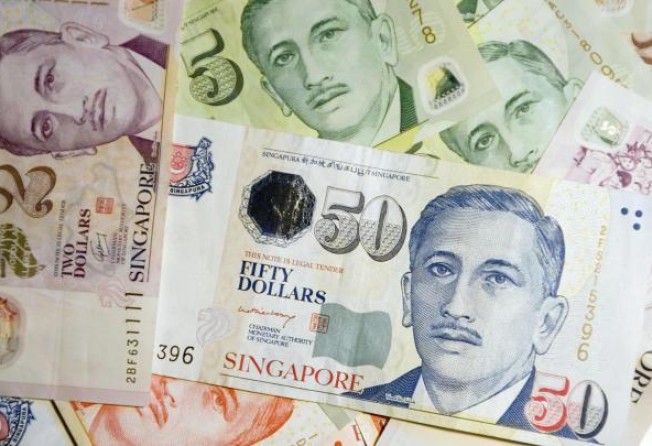Singapore keeps currency steady on inflation fears

Singapore's central bank unexpectedly refrained from easing monetary policy even as the economy contracted in the past quarter, saying inflation will remain high for some time. The Singapore dollar rose.
Gross domestic product fell an annualised 1.5 per cent in the three months to September from the previous quarter, when it expanded a revised 0.2 per cent, the Trade Ministry said yesterday.
The median estimate of 16 economists in a survey was for a 1.6 per cent contraction. The Monetary Authority of Singapore, which uses the Singapore dollar to manage inflation, said it would maintain a modest and gradual appreciation of the currency.
Singapore joins Asian nations from China to India in limiting monetary stimulus as they guard against inflation risks even as fiscal austerity in the euro area to fight the region's debt crisis weighs on the world economy.
The International Monetary Fund has cut its projections for global expansion this year and next, saying it sees "alarmingly high" risks of a steeper slowing.
"The monetary authority is in a policy quagmire where it has sticky inflation on one hand and on the other, it is dealing with unknown but downside risks from the external economy," said Vishnu Varathan, an economist at Mizuho Corporate Bank. "It's judging that it's too premature to send out dovish signals. Growth will remain sub-par and bumpy, with many blind corners."
The Singapore dollar firmed 0.4 per cent to S$1.2217 against its US dollar yesterday morning. It has risen about 6 per cent this year, becoming the best performer among Asia's 11 most-traded currencies tracked.
The monetary authority was expected by the majority in a survey to slow the pace of appreciation in the Singapore dollar to support economic growth. Officials were forecast to curb gains in the currency by decreasing the slope of its trading band, according to 17 of 23 experts surveyed. Five predicted no change, and one projected a shift to a zero slope.
The US$240 billion economy expanded 1.3 per cent in the past quarter from a year earlier, after growing a revised 2.3 per cent in the previous three months. The median forecast was for a 1.1 per cent gain.
The central bank said in April it would allow faster gains in its currency to damp price pressures, diverging from most other regional economies that had left borrowing costs unchanged or eased monetary policy. Since then, inflation has eased to a 21-month low of 3.9 per cent.